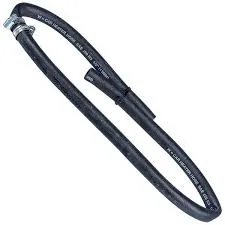heating oil hose
Nov . 08, 2024 21:24 Back to list
heating oil hose
The Essential Guide to Heating Oil Hose Applications, Types, and Maintenance
Heating oil hoses play a crucial role in the oil delivery and heating industry. They are designed to transport heating oil from storage tanks to various heating systems in homes and businesses. The need for efficient, safe, and reliable hoses cannot be overstated, especially as we face increasing demand for heating solutions in colder regions. This article will explore the importance of heating oil hoses, different types available, their applications, and essential maintenance tips.
Understanding Heating Oil Hoses
Heating oil hoses are specialized pipes made to handle the transportation of heating oil, which is a crucial energy source used in residential and commercial heating systems. These hoses must meet specific standards to ensure they are durable and can withstand the operational pressures and conditions they are subjected to. A reliable heating oil hose prevents leaks or spills, which can be hazardous both to the environment and human health.
Types of Heating Oil Hoses
1. Rubber Hoses These hoses are versatile and commonly used because they can handle high temperatures and pressures. They are resistant to oil and often reinforced with braided textiles for added strength and durability.
2. PVC Hoses While lighter and more flexible than rubber hoses, PVC hoses are less durable under high temperatures. They are often used for lower-pressure applications or as temporary solutions in non-critical settings.
3. Composite Hoses These hoses are made from multiple materials combined to provide unique advantages such as flexibility, temperature resistance, and strength. They are suitable for more demanding applications where regular rubber or PVC hoses may not suffice.
4. Fuel Oil Transfer Hoses Specifically designed for the transfer of various fuel oils, these hoses have built-in structural reinforcements to withstand the rigors of continuous use and the potential pressure fluctuations during operation.
Applications of Heating Oil Hoses
Heating oil hoses are predominantly used in residential and commercial heating systems. They connect storage tanks to the heating equipment, such as furnaces and boilers. In addition to direct fuel transfer, they are used in
- Bulk Fuel Delivery In situations where large quantities of heating oil need to be delivered, such as in commercial settings or industrial manufacturing processes. - Generators Generators that run on heating oil require robust hoses to ensure a continuous flow of fuel.
heating oil hose

- Heating Systems Maintenance Professional HVAC technicians often use heating oil hoses for service calls to refill tanks or troubleshoot issues in heating systems.
The reliability of heating oil hoses directly impacts the overall efficiency and safety of heating systems, underscoring their critical role in energy management.
Maintenance Tips for Heating Oil Hoses
Proper maintenance of heating oil hoses is essential for ensuring their longevity and operational efficiency. Here are some key maintenance tips
1. Regular Inspections Periodically check hoses for signs of wear and tear, including cracks, leaks, or fraying. Early detection can prevent potential disasters.
2. Secure Connections Ensure that all connections are tight and properly sealed to avoid leaks. Use clamps and fittings that are rated for the specific type of hose in use.
3. Keep the Area Clean Remove any debris or buildup around the hose’s path to prevent abrasion and damage over time.
4. Store Properly When not in use, store hoses in a cool, dry place away from direct sunlight. Avoid sharp bends and kinks that can weaken the material.
5. Replace When Needed If a hose shows significant signs of damage or wear, it is crucial to replace it immediately to avoid potential leaks and hazards.
Conclusion
Heating oil hoses are indispensable components of the heating oil delivery system. Understanding the different types available, their applications, and the maintenance they require is vital for both safety and efficiency. Adopting best practices in maintaining heating oil hoses not only ensures reliability and longevity but also enhances the overall performance of heating systems. As the world continues to navigate energy challenges, investing in quality heating oil hoses will remain a critical concern for those relying on heating oil for comfort and efficiency.
